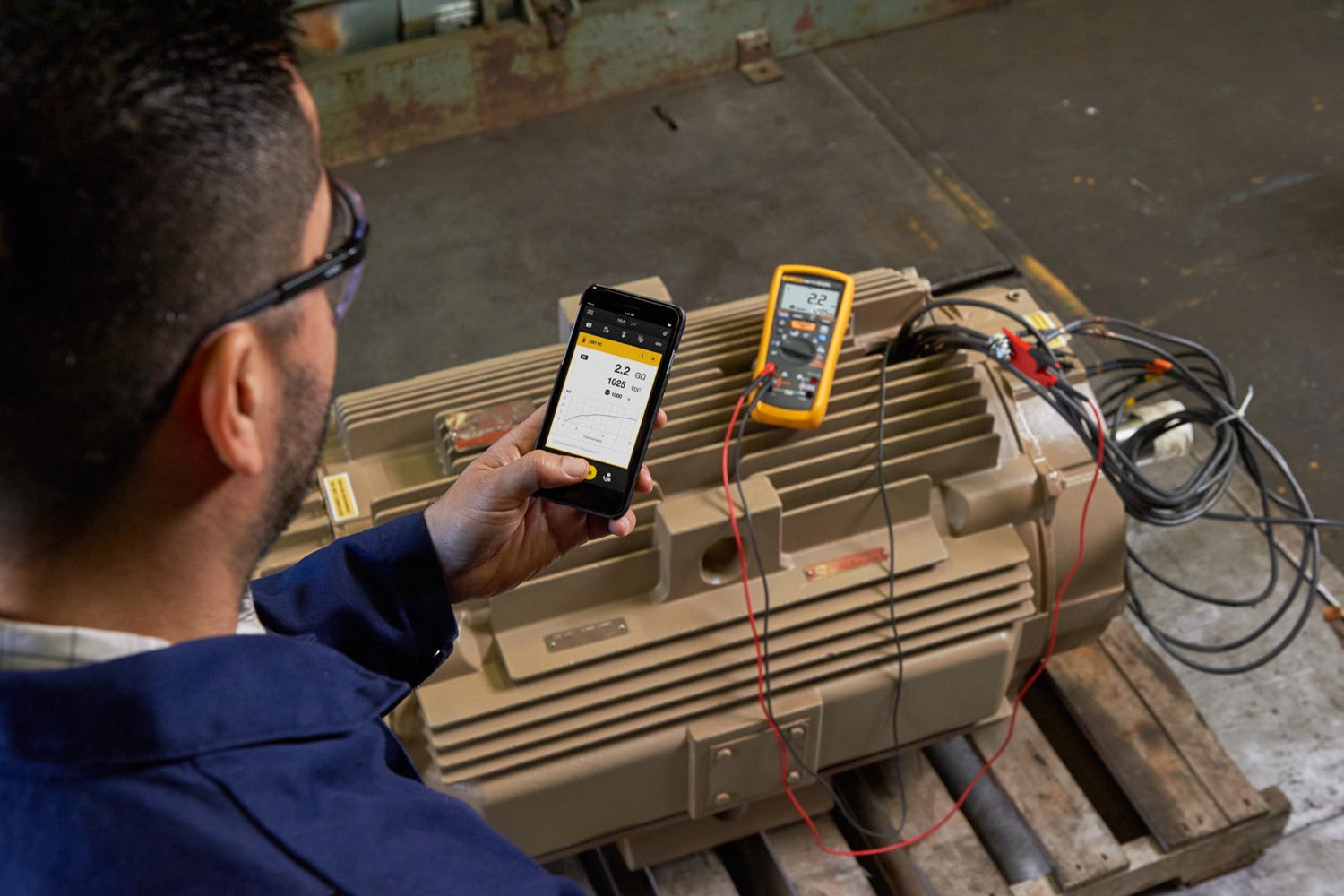Testing insulation resistance is essential to keeping wires and motors working properly. Megohmmeters provide a quick and easy way to determine the condition of the insulation on wire, generators, and motor windings. A megohmmeter is an electric meter that measures very high resistance values by sending a high voltage signal into the object being tested. Typically, however, this is the only function a megohmmeter performs.
While megohmmeters are often informally referred to as insulation testers, strictly speaking this is not accurate. Why? What’s the difference between a megohmmeter and an insulation tester? An insulation tester performs the basic measuring function a megohmmeter does — measuring very high resistance values by sending a high voltage signal into the object being tested — and it often does much more; it usually performs more functions, including more complex testing and recording of measurements.

A full-featured insulation tester can perform high-voltage insulation resistance tests and much more
What makes insulation testers different
For example, unlike megohmmeters, insulation testers can also measure voltage and current. The Fluke 1587 FC insulation multimeter, for example, can perform insulation tests up to 1000 volts, and it is a full-function digital multimeter. The Fluke 1550C FC can generate up to 5000 volts for insulation tests.
Insulation testers can also perform more complex tests, such as compensating for ambient environmental conditions like humidity and temperature during a test, which provides information about how motors perform in changing conditions. Because environmental conditions and/or chemical contamination accelerates the rate at which insulation degrades, it’s critical to compare insulation resistance test results that are corrected for different test conditions.
Insulation testers like the Fluke 1587 FC and the Fluke 1550C FC offer another advantage over megohmmeters. Memory storage through Fluke Connect® saves measurements to your phone or the cloud so you don’t have write down results. This saves time, reduces errors, and saves data for tracking over time.
Choosing between an insulation tester and a megohmmeter depends on your business needs. A meg test may be all you need. But if you want increased power, convenience, prevention, and safety, an insulation tester may be your best choice.
Fluke insulation resistance meters and testers
| Insulation tester features | Two-in-one tools: insulation test plus digital multimeter | Stand-alone tools: dedicated insulation testers | ||||||
| Fluke 1587 FC Insulation Multimeter | Fluke 1577 Insulation Multimeter | Fluke 1503 Insulation Resistance Meter | Fluke 1507 Insulation Resistance Tester | Fluke 1535 2.5 kV Insulation Tester | Fluke 1537 2.5 kV Insulation Tester | Fluke 1550C FC 5 kV Digital Insulation Tester | Fluke 1555 FC 10 kV Insulation Tester | |
| Test voltages | 50 V 100 V 250 V 500 V 1,000 V | 500 V 1,000 V | 500 V 1,000 V | 50 V 100 V 500 V 1,000 V | 250 V 500 V 1,000 V 2,500 V | 250 V to 2,500 V | 250 V to 5,000 V | 250 V to 10,000 V |
| Insulation resistance range | 0.01 MΩ to 2 GΩ | 0.01 MΩ to 600 GΩ | 0.01 MΩ to 2,000 GΩ | 0.01 MΩ to 10 GΩ | 1 kΩ to 500 GΩ | 200 kΩ to 500 GΩ | 200 k to 1 TΩ | 200 k to 2 TΩ |
| PI/DAR | x | x | x + DD Test | x | x | |||
| Auto discharge | x | x | x | x | x | x | x | x |
| Timed ramp test (breakdown) | x | x | x | |||||
| Pass/fail comparison | x | x | x | x | x | |||
| Est. # of IRT tests | 1,000 | 1,000 | 2,000 | 2,000 | 1,300 | 1,300 | Various | Various |
| Voltage >30 V warning | x | x | x | x | x | x | x | x |
| Memory | With Fluke Connect® App | x | x | x | ||||
| Fluke Connect® Compatibility | x | x | x | |||||
| Remote test probe | x | x | x | x | ||||
| Lo ohms/earth-bond continuity | 200 mA source (10 mΩ resolution) | 200 mA source (10 mΩ resolution) | ||||||
| AC/DC Volts | x | x | ||||||
| Display | Digital LCD | Digital LCD | Digital LCD | Digital LCD | Digital/analog LCD | Digital/analog LCD | Digital LCD/analog | Digital LCD/analog |
| Hold/lock | x | x | x | x | x | x | ||
| Multimeter Features | ||||||||
| 1577: AD/DC volts, current, resistance, continuity beeper, backlight | ||||||||
| 1587 only: temperature (contact), lo-pass filter, capacitance, diode test, frequency, MIN/MAX | ||||||||